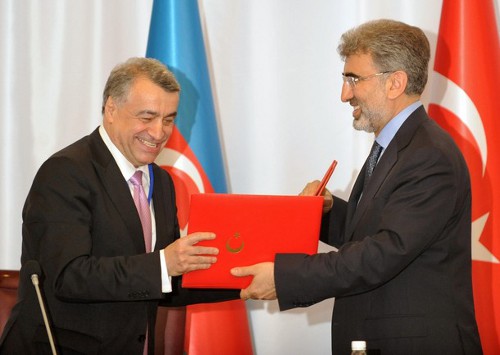
Following years of conflict, international isolation and slow growth, the Balkan countries are on an economic revival track, with GDP growth hovering around 5 percent. Sure, the numbers are more impressive in China, India, Brazil and Turkey, but when compared to the rest of Europe, the Balkan economies are doing great. That is the good news.
The not so good news is the energy picture, which is increasingly worrisome in light of the new dynamism found in the region. There is not enough electricity to go around. And since all of the Balkan countries are targeting European Union membership, their energy output will have to become a lot cleaner, which means a lot of the stuff on offer now will have to be taken off line. Burning lignite coal is not exactly in line with EU environment standards. To meet the dual requirement, the Balkan countries need to look at natural gas as a solution.
Natural gas is a good option for several reasons. The most obvious one is the lower CO2 content compared to lignite coal, which makes up the bulk of power production in most of the Balkan countries today. Second, gas-fired power generation is not expensive to set up. It is much cheaper than nuclear power, which given the astronomical start-up cost is basically a non-option for the region. Introducing a100 percent renewable energy option at the commercial level is also too expensive due to the heavy subsidies. Some green is fine, but it is not realistic to expect the entire region to go green overnight.
The Balkan countries will all need to add capacity to their grids, especially countries like Albania where a 100 percent dependency on hydropower has proven to be a liability. This also helps explain why Albania has been so active in promoting itself as the future Balkan natural gas hub.
Maybe Tirana can pull it off. With the Caspian gas now coming online there’s plenty of new capacity available to be sold in the region. Different projects are in the works, all of which would bring Caspian natural gas to the region or through the region to Europe. Azerbaijan is the key partner in all of this. Its natural gas production capacity is growing, with gas from fields like Shah Deniz 1 and 2 already available. There is also a new transit agreement in place between Azerbaijan and Turkey, which means moving gas from the Caspian Sea to Europe is feasible. There is at least 12 billion cubic meters of natural gas being sold today from Shah Deniz 2 field, which is plenty of gas to fill the Balkan market.
Four pipeline projects are competing to bring the Azeri gas to Europe – TAP, Nabucco, ITGI and AGRI. Each has a different end-market in mind, but it is the TAP project that could deliver real benefits for the Balkan gasification plan. TAP’s mainframe is an under-the-sea pipeline connecting Italy to Albania. Shah Deniz gas is supposed to flow through the existing pipelines from Azerbaijan to Turkey and from there to Albania, and from Albania to Italy. However, TAP also has in store a gas storage facility of up to 2 bcm in Albania to be used as a distribution point of gas for the Balkan market.
The European Union has thrown its weight behind Nabucco, with the EU Commissioner for energy strongly backing the project. This is fine from the perspective of grandeur, but it makes little sense if the objective is to increase the security of energy supply for Europe. Here is the problem: the Nabucco line is supposed to feed the Western European markets, which really means the gas will be sold mainly to the German and Austrian companies. Technically the Balkan countries can bid for this supply and pull gas off of the Nabucco line, but with German buyers in the background it is obvious that the price will be too high to make the product competitive for the Balkan buyers where the price of electricity is still less than a third of what it is in Germany.
This leaves the region without a real energy solution, whereas Western Europe has plenty of alternatives to Caspian gas. Clearly, Caspian gas can help improve energy security for Germany. It may even bring down the price of electricity for the German consumer, but from a pan-European perspective the added value of bringing Caspian gas to Germany versus the Balkans where there are few if any real alternatives is limited.
TAP on the other hand is not as fancy of a project as Nabucco, and it cannot carry as much gas once fully operational. What it does do however is deliver enough Caspian gas to where it is most needed – to the Balkans, and further into Italy.
The EU should be less focused on pomp and promote what is best for improving European energy security on a broad level. Clearly, the Balkan countries, which will all enter the EU this decade, need a better energy mix and a more secure supply source. If this is not addressed now then Balkan economic revival could suffer, which means Europe will have to dish out even more money to develop and integrate this region.
Borut Grgic is the founder and chairman of the transCaspian initiative at the European Policy Center, or EPC, in Brussels, and a senior fellow at the Atlantic Council in the U.S.
Borut Grgic is a nonresident senior fellow at the Atlantic Council. He is the founder of and senior advisor to the TransCaspian project, EPC Brussels, and an expert in EU, Balkan and Caspian relations, political economy and frozen conflicts. This article was first published by Hurriyet Daily News. Photo Credit: Getty Images.
Image: Azerbaijan%20Energy%20Minister500.jpg
